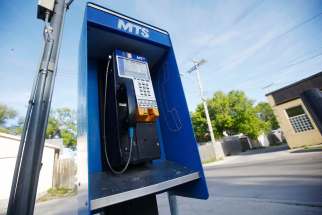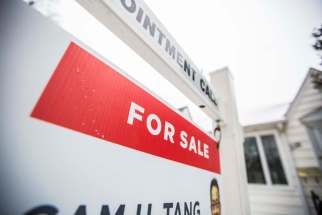‘Your call cannot be completed’ As pay phone use dwindles, those who rely on them struggle to find ones in working order
Read this article for free:
or
Already have an account? Log in here »
To continue reading, please subscribe:
Monthly Digital Subscription
$0 for the first 4 weeks*
- Enjoy unlimited reading on winnipegfreepress.com
- Read the E-Edition, our digital replica newspaper
- Access News Break, our award-winning app
- Play interactive puzzles
*No charge for 4 weeks then price increases to the regular rate of $19.00 plus GST every four weeks. Offer available to new and qualified returning subscribers only. Cancel any time.
Monthly Digital Subscription
$4.75/week*
- Enjoy unlimited reading on winnipegfreepress.com
- Read the E-Edition, our digital replica newspaper
- Access News Break, our award-winning app
- Play interactive puzzles
*Billed as $19 plus GST every four weeks. Cancel any time.
To continue reading, please subscribe:
Add Free Press access to your Brandon Sun subscription for only an additional
$1 for the first 4 weeks*
*Your next subscription payment will increase by $1.00 and you will be charged $16.99 plus GST for four weeks. After four weeks, your payment will increase to $23.99 plus GST every four weeks.
Read unlimited articles for free today:
or
Already have an account? Log in here »
Hey there, time traveller!
This article was published 01/06/2021 (1655 days ago), so information in it may no longer be current.
Several times that day, Selena Templeman walked from the garage in which she was staying to a pay phone in a St. Matthews Avenue parking lot. She dialed the Canada Revenue Agency, hoping to apply for financial aid. By the early evening she’d already stood waiting on the phone for 3 1/2 hours, she said, but still she hadn’t gotten through to anyone. She was visibly annoyed as she waited, shifting her feet and swearing at the telephone box.
For Templeman, who is homeless, pay phones are often the only option when she needs to make phone calls. And those calls, she said, are almost always to government agencies for important things such as a health card, identification or social assistance. For personal matters she prefers to bypass the telephone by simply knocking on doors. 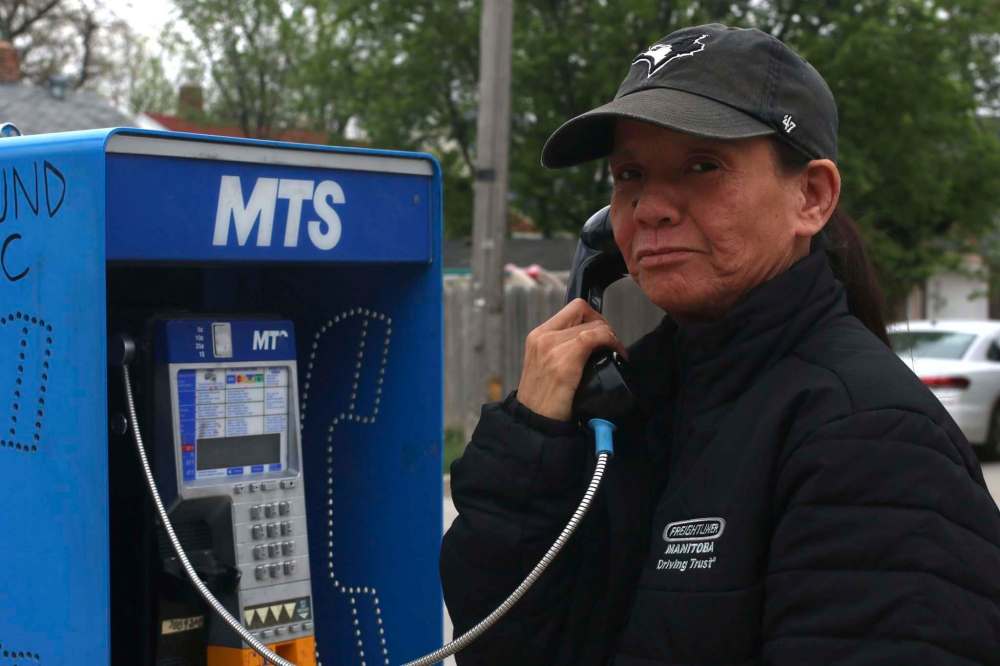
In an era dominated by smartphones, pay phones seem almost antiquated, glimpsed on city sidewalks, gathering dirt and discolouring with time, like the upside-down signs above shuttered stores. But Templeman said other homeless people she knows use pay phones in much the same way she does. The difficulty for them now, said Templeton, is finding one.
“The 7-Elevens no longer have them. All the gas stations are all out,” she said. More often than not, she said, even when she finds one it’s broken.
Through downtown, north Main Street and parts of West Broadway and the North End, the Free Press found six working pay phones of more than 20. Five of those were downtown, and the pay phone Templeton used outside Pal’s Supermarket was the other. The rest were dead, their displays black and dial tones silent. Many other telephone boxes sat empty, the phone removed completely. These pay phones seemed to function more often as garbage bins.
In one instance, at the corner of MacGregor Street and Mountain Avenue, two pay phones back to back on a pole had been smashed open, presumably for the coins inside. Bits of circuit board and fractured plastic were scattered over the cement below. 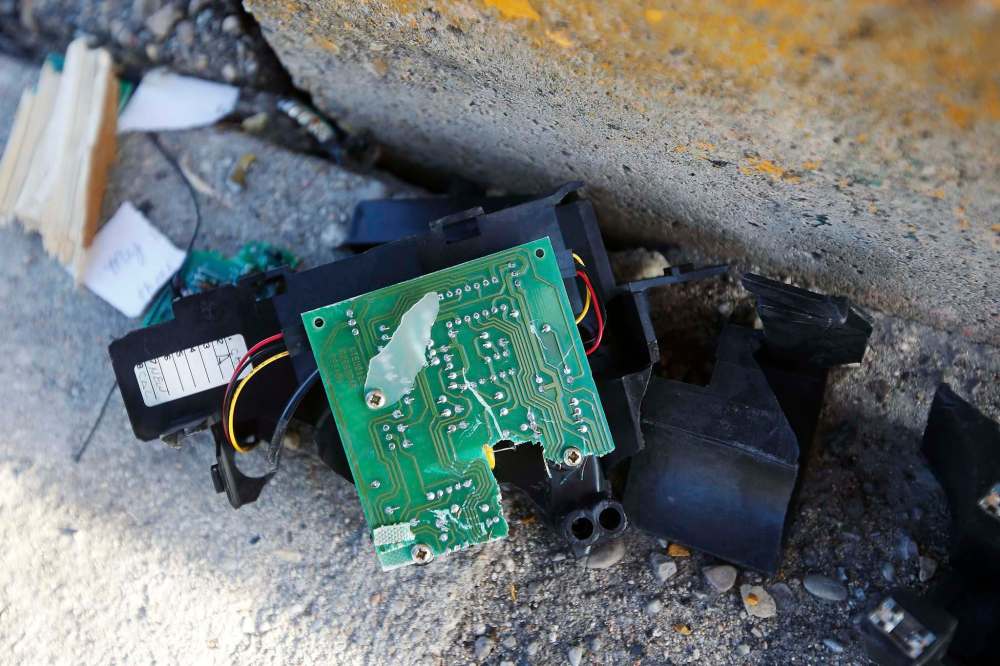
A spokesperson for Bell MTS said that of approximately 2,500 pay phones in Manitoba, about half are in Winnipeg. In recent years, “pay phone use has declined significantly,” but the company has no plans to discontinue service, said the spokesperson. However, pay phone vandalism is a “significant issue”; at any given time, multiple pay phones are on the repair schedule, the spokesperson said. Phones with repeated problems, or phones business owners request be removed, may be eliminated altogether.
Other than Templeton and perhaps others in similar socioeconomic situations, there seems to be a scant public need for these pay phones. Hours passed at two working phones downtown without a single person picking up the receiver. The Pal’s Supermarket pay phone used to be “known by police as being frequented by those involved in drug transactions,” according to 2007 court documents, but Winnipeg police spokesman Rob Carver said those times have passed. 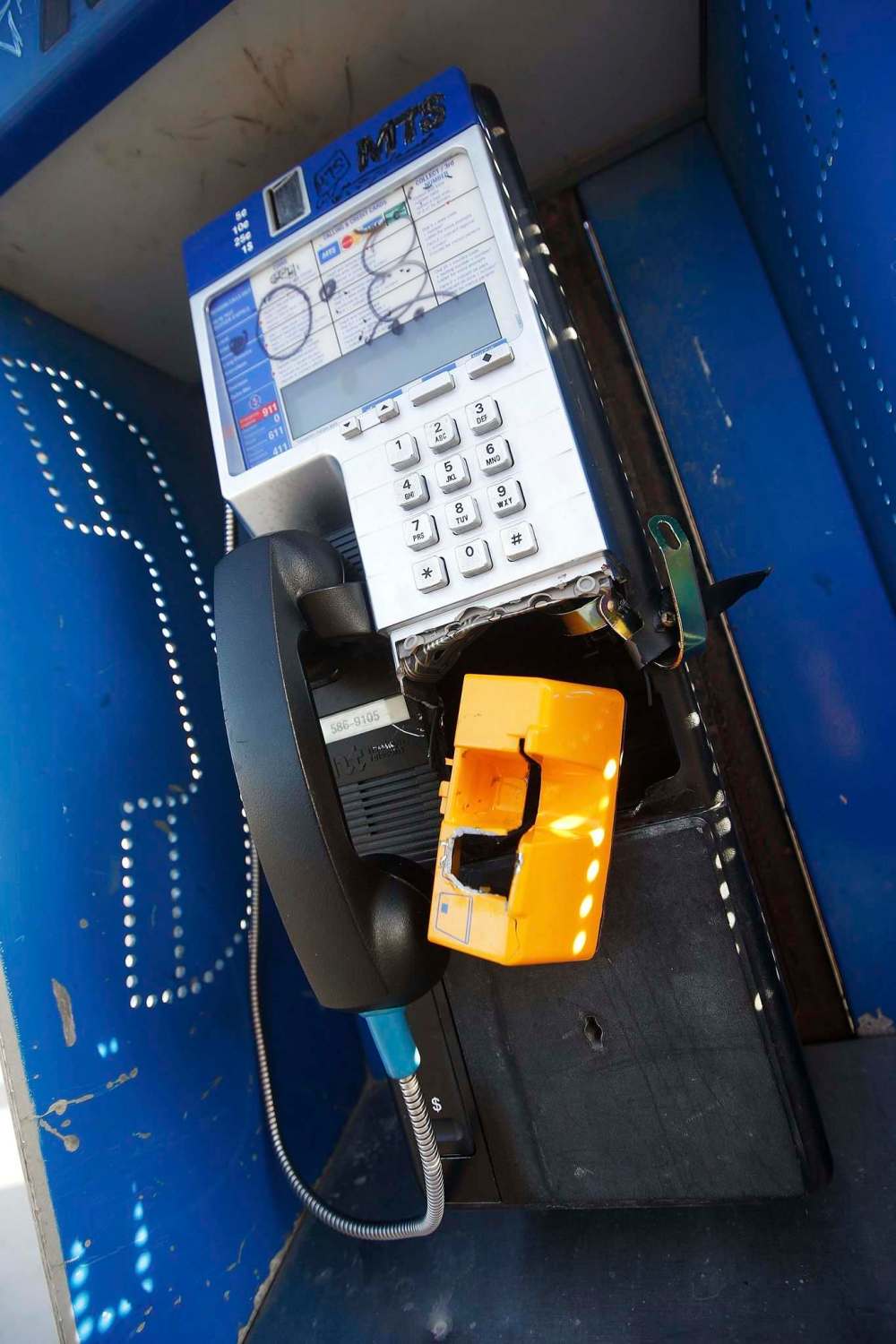
“Not only is this particular location no longer a specific hotspot, but pay phones, in general, have fallen out of favour in the drug trade and criminals,” he said in an email.
Over six hours and two days at the St. Matthews location, only Templeton and one man used the phone. The man, who wouldn’t give his name, said he refuses to pay the high prices for cellphone plans. Instead, he uses pay phones — it’s 50 cents a call — when he’s out and a landline when he’s at home.
Landline subscribers have declined 7.7 per cent from 2020 to 2021 and are a “significantly smaller” portion of Bell MTS’s business than wireless subscribers, said the spokesperson. However, the rate of landline deactivations slowed by 17.1 per cent during the pandemic.
The man at the pay phone said he hadn’t even thought about limiting his phone use to his landline out of worry a pay phone mouthpiece could transmit COVID-19 — at least not until the question was brought up to him that day.
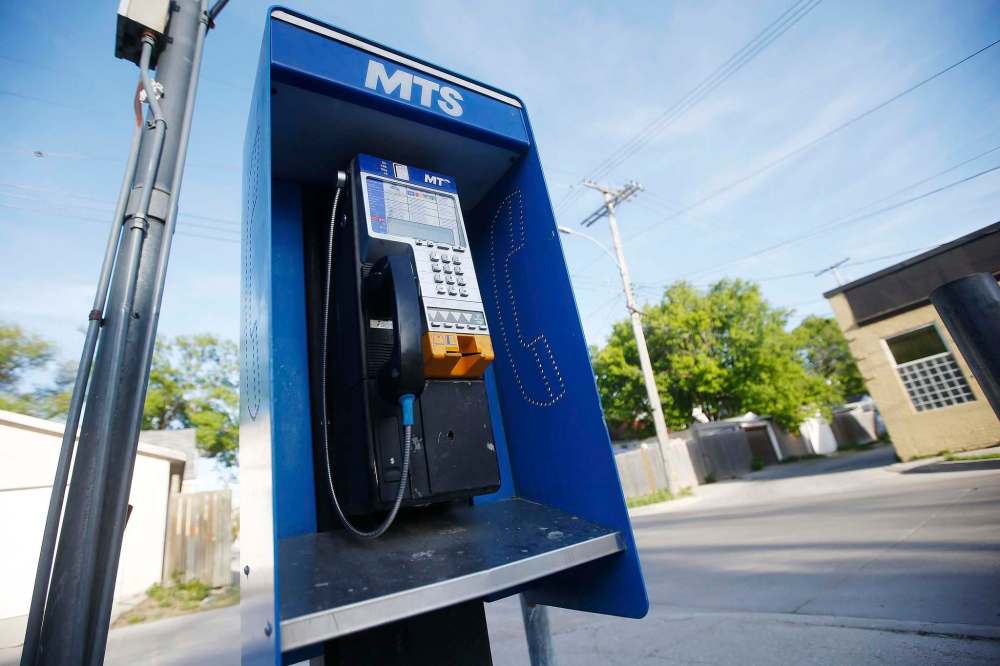
To the same question, Templeton responded: “No.” She wasn’t concerned in the least. Besides, what else could she do?
Luke Thiessen, communications manager at Siloam Mission, said some of the clientele at Siloam still use pay phones.
“I know anecdotally that for many people experiencing homelessness and poverty, at times pay phones are the only option for them to get in touch with family or friends, or to be able to call 911,” he said.
However, the majority of Siloam’s clientele do have cellphones, he said. The issue is that most don’t have phone plans. They often rely on places offering free WiFi to which they can connect. He said finding those places has become more difficult during a pandemic that has often shut down public services — in particular, libraries.
“We know that between our facility and some of these public places, that’s where a lot of our community goes to access WiFi, and that’s hugely important,” he said.
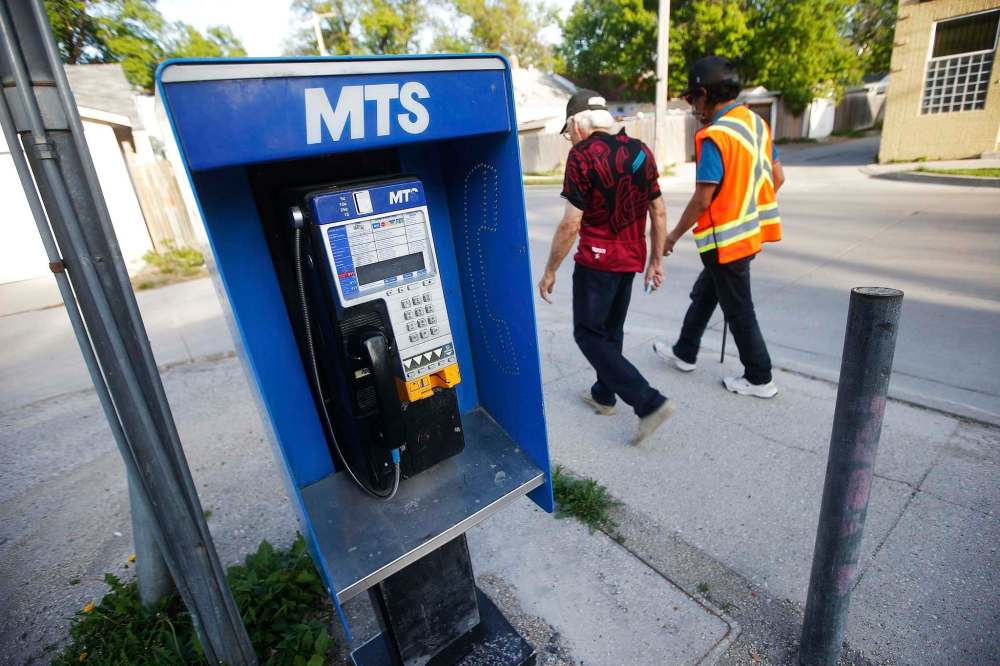
But for those who must travel, often on foot, from one service to another to obtain the necessities of life and to find ways to communicate, a lack of access to, for example, WiFi or pay phones can be an extra burden in an already gruelling mode of life, he said.
Considering most in the community have cellphones but no calling or data, he said more free WiFi around the city could drastically improve access to communication.
Pay phones are hanging around, but they seem to be gasping their last breaths. People like Templeton, who still rely on them to navigate the bureaucracies of urban life, may soon be forced to adjust, as the clink of the coins and the dial tone fade away.
cody.sellar@freepress.mb.ca




.jpg?h=215)


